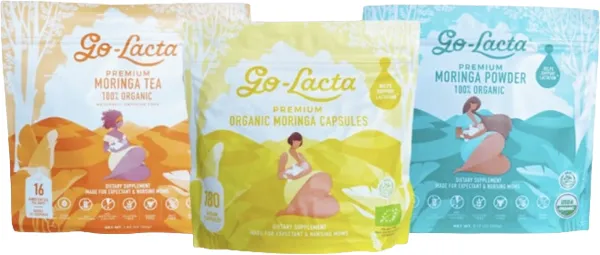Last updated on July 18, 2025

Pregnancy is a beautiful time, but let’s be honest, it also comes with its fair share of challenges. If you’re like many moms-to-be, you’re probably on the lookout for natural ways to stay energized, boost your immune system, and keep both you and your baby healthy. That’s where moringa comes into the conversation.
But here’s the big question: Is moringa safe during pregnancy? Let’s take a close look at the real benefits and risks, so you can decide what’s right for your body and your baby.
What Is Moringa?
Moringa oleifera is a tree native to northern India and parts of Africa, often praised for its nutrient-dense leaves. It’s commonly known by names like the miracle tree, drumstick tree, horseradish tree, or ben oil tree

In traditional Ayurvedic medicine, moringa has been used for centuries to treat over 300 conditions, ranging from digestive issues to high blood pressure. Today, moringa is widely available in the U.S. as a leaf powder, capsule, or tea.
Moringa leaves are packed with vitamins, minerals, amino acids, antioxidants, and anti-inflammatory compounds. Moringa is often referred to as a “superfood” for a good reason. Just take a look at how it stacks up nutritionally.
Nutritional Breakdown: What’s Inside Moringa?
| Nutrient | Moringa (Leaf Powder) |
|---|---|
| Iron | 25x more than spinach |
| Vitamin A | 10x more than carrots |
| Calcium | 17x more than milk |
| Vitamin C | 7x more than oranges |
| Potassium | 15x more than bananas |
| Protein | 9x more than yogurt |
| Magnesium | 36x more than eggs |
Moringa also contains essential amino acids, vitamins B1, B2, B7, and E, anti-inflammatory compounds, and antioxidants like quercetin and chlorogenic acid. Thus, it is not a surprise that its rich profile makes it especially appealing during pregnancy, when nutrient demands are higher.
But if you’re pregnant, not all parts of the plant are safe!
Is Moringa Safe During Pregnancy?
Like with many herbs and plants, the safety of moringa during pregnancy really depends on which part of the plant you’re using. While the leaves are packed with beneficial nutrients and are considered safe in moderation, other parts like the bark, roots, and flowers are not recommended for pregnant women.
🟢 Safe: Moringa Leaf
The leaves of the moringa tree, especially when dried and ground into powder, are generally safe to consume during pregnancy, as long as you stick to small, food-like amounts.
They’re not only non-toxic but also rich in essential nutrients like iron, calcium, vitamin C, and protein, all of which support a healthy pregnancy. Due to their natural iron content and ability to aid absorption, moringa leaves are often recommended as a gentle, food-based way to support women experiencing pregnancy-related anemia.
Looking for a Safe, Pregnancy-Friendly Moringa Supplement?
Go-Lacta® offers moringa supplements made from 100% pure moringa leaves — no roots, no bark, and no additives. Their products are designed to be safe during pregnancy and effective for lactation support later on. That means you can start benefiting from moringa’s nutrients now while preparing your body for breastfeeding.

Here’s what they offer (all safe to use while pregnant):
- Lactation Moringa Leaf Capsules – Easy-to-take capsules that help naturally boost prolactin levels to support future milk supply.
- Lactation Moringa Superfood Powder – Raw powdered moringa leaves in convenient sachets, rich in vitamins, minerals, and essential amino acids.
- Lactation Moringa Tea – Caffeine-free herbal tea designed to keep you hydrated while gently supporting milk production.
👉 Check out Go-Lacta® on Amazon
⚠️ Important: Even though these products are formulated for pregnancy and breastfeeding, always talk to your doctor or midwife before starting any new supplement.
🔴 Not Safe: Moringa Bark, Roots, and Flowers
Other parts of the moringa plant tell a different story. The bark, roots, and flowers contain compounds that may stimulate the uterus, which can raise the risk of contractions or even miscarriage, especially when taken in concentrated forms.
That’s why most health experts and traditional sources strongly advise avoiding these parts of the plant altogether during pregnancy.
💡 Bottom line: Stick to high-quality moringa leaf powder only, and talk to your healthcare provider before adding it to your daily routine.
Benefits of Moringa During Pregnancy
So what can moringa actually do for you while you’re pregnant? Here are some of the top benefits backed by nutritional science and traditional use:
1. Supports Iron Levels & Helps With Anemia
Pregnancy increases your body’s need for iron, and many women struggle to meet it through food alone. Moringa is naturally rich in iron and vitamin C (which helps with iron absorption). That combo can be especially helpful in preventing or managing pregnancy anemia.
2. Boosts Immune Function
Thanks to its high antioxidant and vitamin content, moringa helps strengthen the immune system, something every mama needs when growing a baby!
3. Supports Healthy Digestion
Moringa is a source of fiber, which can help relieve constipation, a super common pregnancy woe. A healthy gut also supports better nutrient absorption and immune response.
4. May Help Balance Blood Sugar
Some early studies suggest that moringa can help regulate blood sugar levels due to its content of vitamin B7 (biotin). This might be beneficial for moms dealing with gestational diabetes, though more research is needed.
5. Can Support Breastfeeding Later On
Although we’re focusing on pregnancy, it’s worth noting that moringa is traditionally used in some cultures to increase milk supply. That could be something to revisit postpartum if you decide to breastfeed.
Moringa Side Effects & Safety Tips for Pregnancy
While moringa leaves are safe for most pregnant women, here are a few things to keep in mind:
Potential Side Effects (usually mild):
- Upset stomach or nausea
- Diarrhea (especially if you take too much at once)
Avoid if:
- You have low blood pressure or take medication for it (moringa can lower BP further)
- You have hypothyroidism (moringa may interfere with thyroid function)
- You’re taking blood sugar medications (it may amplify the effects)
📌 Pro tip: Start with a small dose (like ¼ tsp of powder) to see how your body reacts, and increase slowly if needed, with your doctor’s okay.
Common Questions About Moringa in Pregnancy
How to Choose a Safe Moringa Supplement
Most moringa supplements are made from dried moringa leaves, which retain high concentrations of key nutrients. If you’re shopping for moringa powder or capsules during pregnancy, here’s what to look for:
- USDA organic
- 100% moringa leaf only
- No added fillers or extracts
- Third-party tested for purity
- Good reviews and transparency from the brand
⚠️ Important: Supplements aren’t regulated as strictly as medications, so quality varies widely. Always read ingredient lists carefully, and check with your OB-GYN before taking moringa capsules or powder while pregnant.
Final Thoughts: Should You Use Moringa While Pregnant?
Moringa can be a powerful natural ally during pregnancy, but like with all supplements, it’s not one-size-fits-all. If you’re low on iron, dealing with low energy, or simply want to boost your prenatal nutrition, moringa leaf powder might be a great addition to your diet.
Just remember:
- Stick to moringa leaves only
- Avoid bark, roots, or high-potency extracts
- Always get the green light from your doctor first
And hey, if you’d rather skip it for now? That’s perfectly fine, too. You can always come back to moringa after baby arrives to help boost recovery and support breastfeeding.
Take care of yourself, mama—you’ve got enough on your plate already.
Sources & Further Reading
Disclaimer: This post is for informational purposes only and does not replace medical advice. Always consult your doctor or OB-GYN before making any changes to your diet or supplement routine while pregnant.
Disclosure: If you shop through an affiliate link on this site, I may earn a small commission at no extra cost to you. I only recommend products I trust and would use myself!
